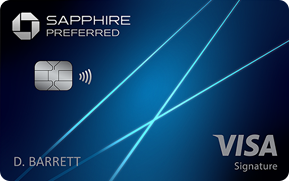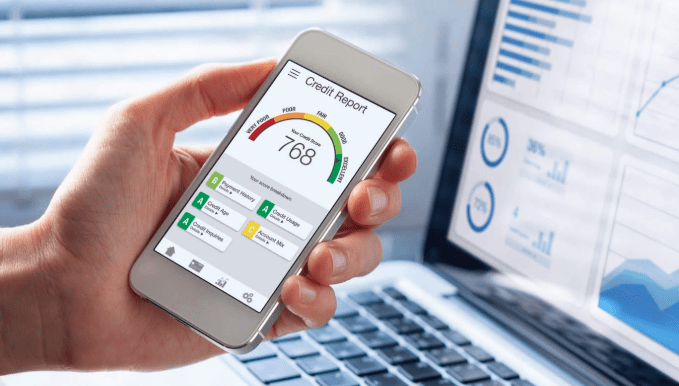Disclaimer: Neither I or anyone at thePointsPage is a financial advisor or legal expert. The information provided in this guide is for informational and entertainment purposes only. It is essential to consult with a qualified professional before making any financial decisions.
The goal of this guide is to help you stack up your points and miles without damaging your 5/24 score by leveraging business credit card applications. Not only do they not add to 5/24, they typically have higher than normal SUB’s (sign up bonuses), and don’t have family exclusions like other personal cards do (ie, the inability to hold both a Sapphire Reserve and Sapphire Preferred at the same time).
Here’s the truth: we’re trying to grow.
If you find value in our guides and one-on-one consultative approach, please consider joining our FB Community, following a few of our socials, and signing up for our email newsletter.
Follow along below to learn how to correctly fill out your business card application ensuring you don’t get auto-denied for a simple mistake (it happens a lot).
Table of Contents
First Steps Before Applying
Before jumping into the application, you need to do a few things to make sure you’re even eligible:
- Make sure you’re under 5/24 – Read our article about the 5/24 rule here to better understand exactly what it is, how it impacts your applications, and why business cards don’t add to this number (though you must be under 5/24 to get approved for Chase business cards). To check your 5/24 number, you’ll need to add up all of your personal credit cards you’ve been approved for within the past 24 months. Use a service like Experian’s App to look back at your reports and add up those cards.
- Make sure your credit reports aren’t frozen – This will cause an instant denial on any credit card application (or at least an in-review situation that requires a phone call to remedy). It’s worth noting that you should always have your credit reports frozen when not actively applying for credit. This reduces the potential for identity theft and someone hacking your personal info.
- Make sure you have a 30-day period from your last app – If you’re applying for a new business credit card, make sure at least 30 days have passed since your last application. However, there are datapoints showing you can get approved for 1 business card and 1 personal card within a rolling 30 day period with Chase.
- Use a referral link – The public offers that we all see online are typically the same ones offered through personal referrals or affiliate links. There’s no sense in leaving points on the table for any application, so make sure you’re using someone’s referral link. If you find our content valuable, please consider our referral links listed here, or you can message me directly through FB Messenger to check what the highest current offers are.
How to Qualify as a Business
When you hear “business” you think of Home Depot, Kroger, Macy’s, Staples, and the like, right? Yea, we all do, but it’s important to understand that small businesses can be single-person setups run right out of your home, too.
Generally speaking, a business can be a side hustle that helps earn you some income in some way. Easy, right? It doesn’t have to have state incorporation paperwork filed (though, it can), doesn’t have to generate $100k in income every year, and it doesn’t even have to have a fancy name like thePointsPage. Your business can be as simple as this:
A single person with or without a formal business name, selling items, providing services, or even just coordinating shipments of online orders for others. Your revenue can range from $0 if you’re just starting out, all the way to whatever actual amount you’re bringing in.
Businesses are broad.
As a real life example, we’ve had many members apply for business credit cards as ‘product resellers’ and get approved instantly. A reseller could be someone that maybe sells their old stuff online that they have laying around their home, someone who dropships, or someone who has a full-on warehousing operation to sell during peak times of the year. These all count.
Think about this as we move on the application section itself. Do you or have you ever sold anything on FB Marketplace, eBay, Craiglist, at a garage sale, to a neighbor? Do you provide points and miles consulting services for others either for a fee, commission, or for free?
If yes, then congrats, you likely can qualify as a business for the purposes of applying for business credit cards.
How to Fill Out the Application
Disclaimer: The details below are used as an example only, and might not be applicable to your specific need. Please make sure you review your own business situation, state laws, requirements, and business type before completing any application for credit.
Welcome to the fun part that brought you here in the first place!
Everyone’s application will be different, but as an example I’ll show you how I would fill out an application for a hypothetical merchandise reselling business under 3 different ownership types:
- Sole Proprietorship using an SSN,
- Sole Proprietorship with an EIN, and an
- LLC with an EIN.
I’ll use the Chase business card application as the example here since it’s one of the more popular options we see. The individual parts of the application that we’ll review look like this:






Sole Proprietorship with an SSN
- Authorizing Officer Title: Single member Sole Prop businesses usually use ‘owner’ as the Officer Title
- Name: They’re asking for your full first and last name, just as it appears on your driver’s license or government issued photo ID
- Date of Birth: They’re asking for your birthdate in the mm/dd/yyyy format
- Mother’s Maiden Name: They’re asking for your mother’s maiden name for identity verification reasons
- Tax ID Type: This part asks for your assigned SSN or ITIN. An ITIN is like a SSN, but only for certain non-resident or resident aliens who can’t obtain their own SSN
- Address Type: Usually this will be domestic unless your home is on a military base
- Street Address, City, State, Zip: They’re asking for your personal home address info for verification purposes
- Email Address, Phone Number: They’re asking for your contact information to let you know the status of the application, as well as identity verification reasons
- Total Gross Annual Income: They’re asking for a total annual amount that could be used to pay a debt on the credit card if you were approved. Read the disclaimer to understand whose income within your household you can add to this figure
- Authorizing Officer Title: Single member Sole Prop businesses usually use ‘owner’ as the Officer Title
Business Info Section:
- Legal Business Structure: In this example, Sole Proprietorship
- Business Legal Name: If you haven’t filed paperwork with your state to use a fictitious name for your business (ie, like “thePointsPage”), then enter your legal first and last name ONLY just as it appears on your driver’s license excluding middle initial
- Desired Business Name on Card: This will be the same as the Legal Business name
- DBA Question: Usually “No”. This means you haven’t filed paperwork with your state to use a fictitious name for your business, like “thePointsPage”
- Number of Employees: “0” if you’re the only employee of the business.
- Tax ID Type: Since the application is for a Sole Prop using their SSN, the Tax ID Type here would be “SSN”, and you’d enter your personal SSN
- Physical Address: Usually “Yes” assuming the business is operated out of a home and not an offsite location
- Business Phone Number: Enter either a dedicated business phone number, or a personal phone number if you don’t have a business line
- Business Established Date: They’re asking for the date you first started operating in a business-like manner. This could be the first time you held a garage sale, the first time you sold a trinket in a FB Mom-Swap group, or similar.
- Annual Business Revenue: They’re asking how much money the business makes annually, or how much you estimate it will make. I’ve seen applicants list $5,000 as an estimate for new businesses and skyrocket past that amount, and others who only make a few hundred. Either scenario is acceptable since business income is never guaranteed.
- Estimated Monthly Spend: They’re asking how much you’ll charge to the card monthly for all purchases. This can be an estimate which will be used to help determine the limit you’re offered. I’ve seen applicants list $2,500 per month and get approved for $15,000, and others only approved for $3,000.
- Business Classification / Business Description: I used “reseller” in the search field, then click off so it brings up the drop-down lists below.
- Business Category: A “reseller” type business would pick “Retail: Books, Music, Sports, Hobbies, Health, Fashion, Gas, Misc”
- Business Type: A “reseller” type business would pick “Other Miscellaneous Store Retailers”
- Business Sub-Type: A “reseller” type of business would pick “All Other Miscellaneous Retailers”
- Additional 3 Radio Button Questions: Typically, smaller “reseller” type businesses wouldn’t participate in any of the 3 options listed, and would select “No” for each
Sole Proprietorship with an EIN
- Authorizing Officer Title: Single member Sole Prop businesses usually use ‘owner’ as the Officer Title
- Name: They’re asking for your full first and last name, just as it appears on your driver’s license or government issued photo ID
- Date of Birth: They’re asking for your birthdate in the mm/dd/yyyy format
- Mother’s Maiden Name: They’re asking for your mother’s maiden name for identity verification reasons
- Tax ID Type: This part asks for your assigned SSN or ITIN. An ITIN is like a SSN, but only for certain non-resident or resident aliens who can’t obtain their own SSN
- Address Type: Usually this will be domestic unless your home is on a military base
- Street Address, City, State, Zip: They’re asking for your personal home address info for verification purposes
- Email Address, Phone Number: They’re asking for your contact information to let you know the status of the application, as well as identity verification reasons
- Total Gross Annual Income: They’re asking for a total annual amount that could be used to pay a debt on the credit card if you were approved. Read the disclaimer to understand whose income within your household you can add to this figure
- Authorizing Officer Title: Single member Sole Prop businesses usually use ‘owner’ as the Officer Title
Business Info Section:
- Legal Business Structure: In this example, Sole Proprietorship
- Business Legal Name: If you haven’t filed paperwork with your state to use a fictitious name for your business (ie, like “thePointsPage”), then enter your legal first and last name ONLY just as it appears on your driver’s license excluding middle initial
- Desired Business Name on Card: This will be the same as the Legal Business name
- DBA Question: Usually “No”. This means you haven’t filed paperwork with your state to use a fictitious name for your business, like “thePointsPage”
- Number of Employees: “0” if you’re the only employee of the business.
- Tax ID Type: Since the application is for a Sole Prop using an EIN issued by the IRS, the Tax ID Type here would be “EIN”, and you’d enter the EIN that the IRS has assigned to you
- Physical Address: Usually “Yes” assuming the business is operated out of a home and not an offsite location
- Business Phone Number: Enter either a dedicated business phone number, or a personal phone number if you don’t have a business line
- Business Established Date: They’re asking for the date you first started operating in a business-like manner. This could be the first time you held a garage sale, the first time you sold a trinket in a FB Mom-Swap group, or similar.
- Annual Business Revenue: They’re asking how much money the business makes annually, or how much you estimate it will make. I’ve seen applicants list $5,000 as an estimate for new businesses and skyrocket past that amount, and others who only make a few hundred. Either scenario is acceptable since business income is never guaranteed.
- Estimated Monthly Spend: They’re asking how much you’ll charge to the card monthly for all purchases. This can be an estimate which will be used to help determine the limit you’re offered. I’ve seen applicants list $2,500 per month and get approved for $15,000, and others only approved for $3,000.
- Business Classification / Business Description: I used “reseller” in the search field, then click off so it brings up the drop-down lists below.
- Business Category: A “reseller” type business would pick “Retail: Books, Music, Sports, Hobbies, Health, Fashion, Gas, Misc”
- Business Type: A “reseller” type business would pick “Other Miscellaneous Store Retailers”
- Business Sub-Type: A “reseller” type of business would pick “All Other Miscellaneous Retailers”
- Additional 3 Radio Button Questions: Typically, smaller “reseller” type businesses wouldn’t participate in any of the 3 options listed, and would select “No” for each
LLC with an EIN
- Authorizing Officer Title: Single member LLC businesses usually use ‘owner’ as the Officer Title
- Name: They’re asking for your full first and last name, just as it appears on your driver’s license or government issued photo ID
- Date of Birth: They’re asking for your birthdate in the mm/dd/yyyy format
- Mother’s Maiden Name: They’re asking for your mother’s maiden name for identity verification reasons
- Tax ID Type: This part asks for your assigned SSN or ITIN. An ITIN is like a SSN, but only for certain non-resident or resident aliens who can’t obtain their own SSN
- Address Type: Usually this will be domestic unless your home is on a military base
- Street Address, City, State, Zip: They’re asking for your personal home address info for verification purposes
- Email Address, Phone Number: They’re asking for your contact information to let you know the status of the application, as well as identity verification reasons
- Total Gross Annual Income: They’re asking for a total annual amount that could be used to pay a debt on the credit card if you were approved. Read the disclaimer to understand whose income within your household you can add to this figure
- Authorizing Officer Title: Single member LLC businesses usually use ‘owner’ as the Officer Title
Business Info Section:
- Legal Business Structure: In this example, LLC
- Business Legal Name: Since applying as an LLC with an EIN, the business has been registered with your state or local governing authorities per regulations, and the business name has been documented in those filings. Enter the legal name of the business as registered (ie, like “thePointsPage”)
- Desired Business Name on Card: This will be the same as the Legal Business name
- DBA Question: Usually “No”. This means you haven’t filed paperwork with your state to use a fictitious name for your business, like “thePointsPage”. If you have filed that paperwork, you can select “Yes”
- Number of Employees: “0” if you’re the only employee of the business.
- Tax ID Type: Since the application is for an LLC using an EIN issued by the IRS, the Tax ID Type here would be “EIN”, and you’d enter the EIN that the IRS has assigned to you
- Physical Address: Usually “Yes” assuming the business is operated out of a home and not an offsite location
- Business Phone Number: Enter either a dedicated business phone number, or a personal phone number if you don’t have a business line
- Business Established Date: They’re asking for the date you first started operating in a business-like manner. This could be the first time you held a garage sale, the first time you sold a trinket in a FB Mom-Swap group, or similar.
- Annual Business Revenue: They’re asking how much money the business makes annually, or how much you estimate it will make. I’ve seen applicants list $5,000 as an estimate for new businesses and skyrocket past that amount, and others who only make a few hundred. Either scenario is acceptable since business income is never guaranteed.
- Estimated Monthly Spend: They’re asking how much you’ll charge to the card monthly for all purchases. This can be an estimate which will be used to help determine the limit you’re offered. I’ve seen applicants list $2,500 per month and get approved for $15,000, and others only approved for $3,000.
- Business Classification / Business Description: I used “reseller” in the search field, then click off so it brings up the drop-down lists below.
- Business Category: A “reseller” type business would pick “Retail: Books, Music, Sports, Hobbies, Health, Fashion, Gas, Misc”
- Business Type: A “reseller” type business would pick “Other Miscellaneous Store Retailers”
- Business Sub-Type: A “reseller” type of business would pick “All Other Miscellaneous Retailers”
- Additional 3 Radio Button Questions: Typically, smaller “reseller” type businesses wouldn’t participate in any of the 3 options listed, and would select “No” for each
- Percent of Ownership: If the LLC is a single-member LLC and owned solely by that member (this is usually the case), then ownership would be 100%. If there are co-owners of the LLC per officially filed paperwork, then list their ownership stake and answer the additional questions
Uh-Oh, the Application is 'In Review'
Ignore all the gloom and doom of the header above, it’s not as bad as you think…
Once an application is submitted, it’ll more than likely need to undergo some additional review by the back office team at whichever bank you’re applying with. That’s completely normal. Give it as few as 20 minutes to get and email approval, or sometimes as long as a couple weeks.
If you’re getting a little impatient and want to check in on the approval status, you can call the bank’s business card reconsideration line to ask if you’re approved or not. You can call immediately after applying if you’re comfortable talking about your business, or you can wait it out while you prepare.
As of the date of this guide’s publication, the following numbers are current:
-
- American Express: 877-399-3083 (New Accounts); 866-314-0237 (Existing Accounts)
- Barclays: 866-408-4064
- Capital One: 800-625-7866
- Chase: 800-453-9719
- Citi: 800-763-9795
- Discover: 888-676-3695
- US Bank: 800-947-1444
- Wells Fargo: 866-412-5956
Yikes, the Application is Denied
Alright, well, we can’t ignore this doom and gloom…
Fear not, this happens. It’s just part of the process. Everyone at some point is going to get denied for a new credit application even though they really think that app should have been approved. Good thing for us, there’s a solution:
Time to make a reconsideration call!
Using the same phone numbers as listed above, you’ll call into the bank’s reconsideration department and try to plead your case about why you think your application should have been approved. There’s a recommended phrase I’ve seen in posts, groups, and online elsewhere that brings it all home when making that initial call, and one you should memorize as you work through the recon process:
“I recently sent in an application for the XYZ business credit card, but didn’t receive an approval. I’m calling to ask if there’s some kind of additional information I could provide to help get the application turned around into an approval, as I have a few purchases for my businesses that I’d like to make with this new card.”
Sounds pretty good, right? You come off as calm, cool, collected, knowledgeable about the process, and as someone who’s just trying to work with the company to get something approved that’ll be mutually beneficial.
Unfortunately, the first person you spout that line off to is what we like to call the “gatekeeper”, and they’ll just say “no”. That’s ok, be persistent, ask follow up questions, ask if there’s an analyst available you could speak with, ask if there’s someone who could review the application more in depth, ask something that’ll get them to transfer your call to the actual reconsideration team.
Once you get there it’s just a matter of being nice, polite, cordial, funny, and all-around likeable. I know it seems a bit strange, but just having that kind of demeanor can be all the difference in getting your card approved vs having it get stuck as a denial.
If you’re not so sure about the whole reconsideration call thing and want a little practice beforehand, schedule a One-on-One Reconsideration Coaching Call with thePointsPage here. We’ll walk you through a mock recon call, talk about what questions they’ll ask and why, and drill down into why we think they likely denied the application in the first place.
Getting to the Point(s)
Business credit applications can be tricky, and the answers aren’t always what you think they should be. Hopefully this guide helped with filling in a few of the gaps during your application process and you were able to get a quick approval on your new card.
I’m guessing if you’ve made it this far it’s probably pretty safe to assume your application was submitted, you stuck around for the review, rocked the recon, and you received an approval. If so, congratulations!
As we mentioned at the top of this guide, we’re a growing company and would love to be able to keep in touch with news, tips, tricks, and guides when you want them. With that said, check out our online FB Community here to join other like-minded travel hackers for all things travel, and sign up for our email newsletter here.








